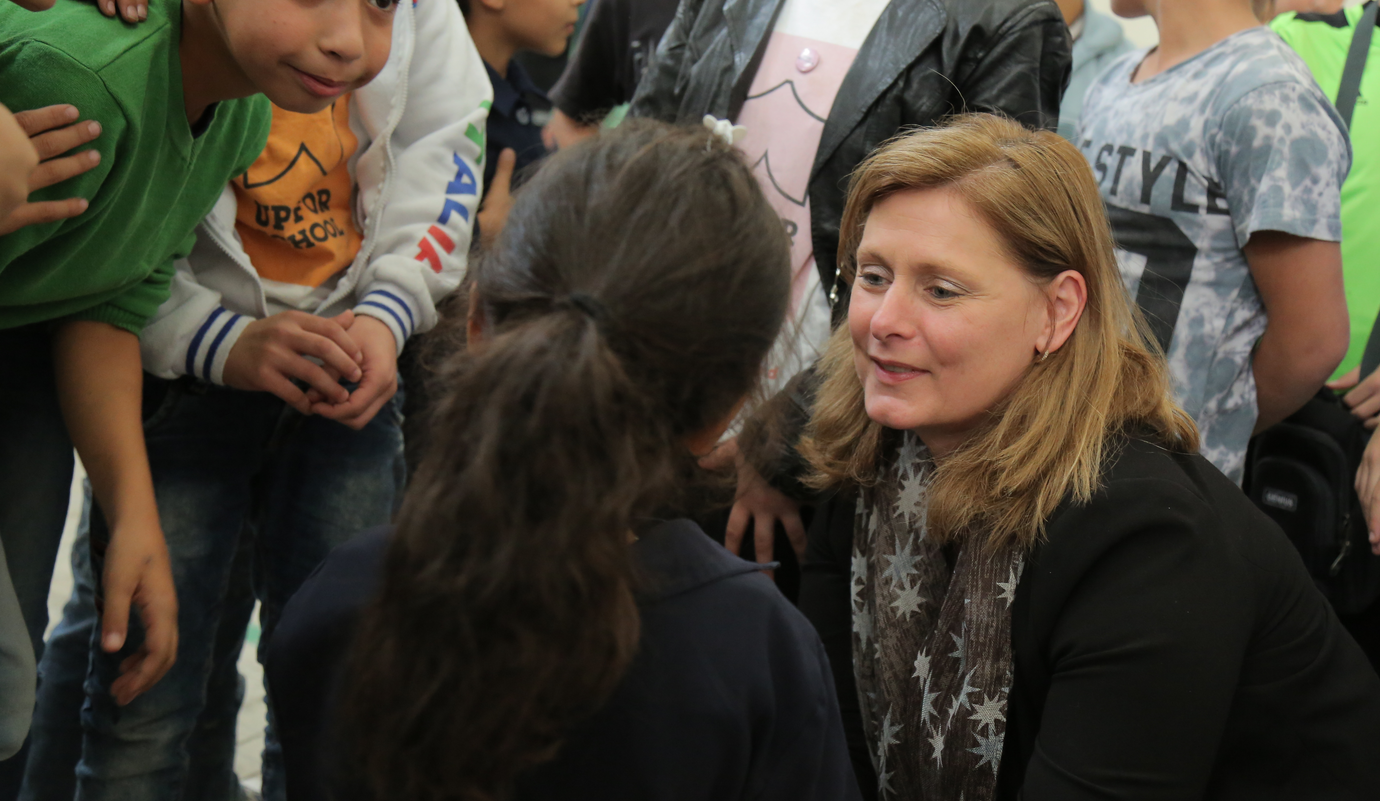
What is the Education Commission and its global mission?
Education funding
The Education Commission meets in Washington, DC, in April 2016
Its official title isn’t very catchy – the International Commission on Financing Global Education Opportunity. But its mission is simple: help to shape the future for millions of children around the world.
Better known just as the Education Commission, it has been conducting a year of investigations, research and consultations into how to finance and deliver quality schooling to every child in every country.
Its report will be delivered at the United Nations in New York on September 18. UN Secretary-General Ban Ki-moon has promised to act on its recommendations.
Here’s our quick guide to the commission, its work and some of its high-powered members. And you can watch some of the commissioners talking about their vision for education.
What is the Education Commission?
Launched in September last year, its remit was to examine how to reverse the lack of financing for education around the world, which has left millions of young people out of school and hundreds of millions without quality learning opportunities.
The commission has been exploring how – over the next 15 to 20 years – education could lead to greater economic growth, better health outcomes and improved global security.
It has four expert panels on finance, health, technology and youth.
What were its main objectives?
- Bring together the best evidence from around the globe about what works to expand and improve learning opportunities
- Agree on an investment case and agenda for action
- Inspire and persuade leaders – at all levels and sectors – to action
Who is on the commission?
Five former prime ministers and presidents and three Nobel Prize winners are among the 20 world leaders who sit on the commission. It also includes policymakers and researchers.
It is chaired by Gordon Brown, the former British Prime Minister and United Nations Special Envoy for Global Education. It is co-convened by Norwegian Prime Minister Erna Solberg, President Michelle Bachelet of Chile, President Joko Widodo of Indonesia, President Peter Mutharika of Malawi and Irina Bokova, the Director-General of UNESCO.
Who did it consult?
A huge number of people and organisations – there were 138 civil society consultations in more than 80 countries on six continents.
We asked. You answered. We’ve shared the results of our #globalconsultations in our #communityvoices #: https://t.co/dRDFODoZMQ
— Education Commission (@educommission) July 26, 2016
They included 55 NGOs, 39 networks, 18 universities and seven research institutions – and the Theirworld, the children’s charity behind A World at School. They responded to six key questions translated into six languages – English, French, Spanish, Arabic, Chinese and Russian.
The commission also received and analysed research papers and inputs from more than 30 research partners in 15 countries.
What about the voices of young people?
A World at School’s Global Youth Ambassadors hosted consultation sessions in the United Kingdom and Norway.
Four of our GYAs – Naglaa Fathy, Hellen Griberg, Benedict Joson and Mohamed Sidibay – were among 16 young activists serving on the commission’s Youth Panel, which contributed to the final report.
And A World at School also partnered with the commission and MTV Voices on the Education Youth Video Challenge. Young people were asked to make a short film on schools of the future. Find out who won it and watch the best videos.
Why has education become such a global priority?
Millions of children around the world are out of school because of poverty, conflicts, natural disasters, child labour, child marriage and exploitation.
They need safe places to learn, where they can fulfil their potential and not be at risk of being forced to work, marry early or be exploitated in many ways.
Also, as the commission says: “The major trends set to shape the world over the coming decades will increase the value of skills and worsen the prospects of those without them.
“If countries do not prepare young people for these changes, the consequences could be severe and spread around the world.”
Find out more about the Education Commission on its website.
More news

